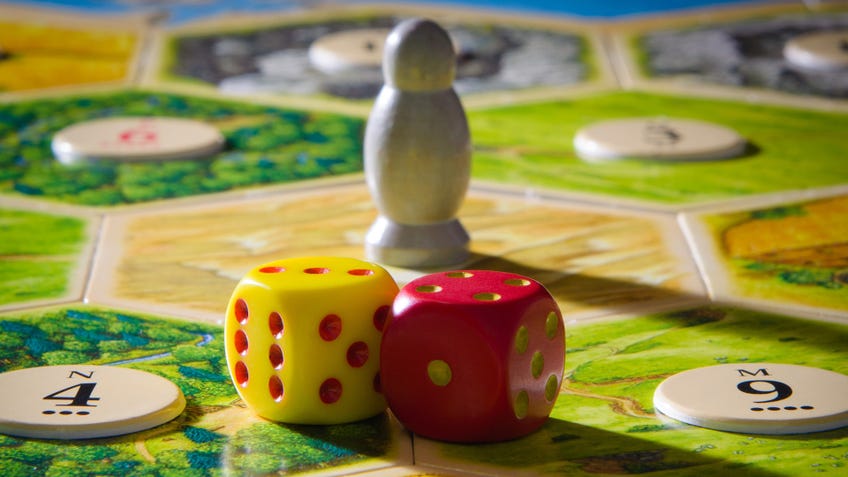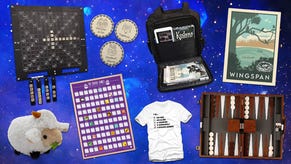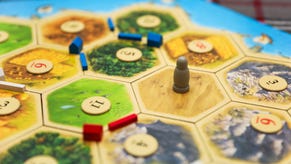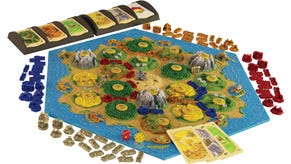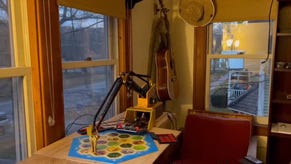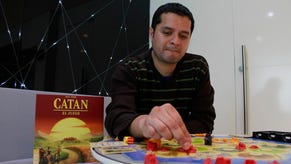Without Catan, board gaming as we know it today wouldn’t exist
A look back on Catan’s lasting legacy following the death of designer Klaus Teuber.
Klaus Teuber has died, the creator of Catan passing away on April 1st after a “brief and severe” illness.
Few board games have had as deep and lasting an impact on popular culture as Catan. Teuber’s 1995 magnum opus isn’t just a beloved board game. It’s a cultural phenomenon, referenced in Big Bang Theory episodes, internet memes and earning a place in the board game libraries (and Instagram feeds) of everyone from pop stars and NFL players to Hollywood actors. Arguably, Catan might be the most important and influential board game since Monopoly - and certainly more deserving of widespread recognition.
It’s hard to understate the influence that Catan has had on modern board gaming. While its popularity took a few years to truly explode following its debut as Die Siedler von Catan in 1995, its popularisation of hobby board games outside of its home country paved the way for the tabletop industry today. Without it, it’s hard to imagine a world where games like Gloomhaven, Wingspan and Azul have gone beyond hobbyist appreciation to find mainstream success.

When it first released, Catan represented something fresh for players outside of Germany, who were used to the luck-driven tedium of Monopoly, competitive elimination of Risk or non-existent theming of Scrabble. While it wasn’t the originator of the genre, Catan was considered the epitome of what were known as ‘Eurogames’ - or 'German-style' board games, after the region closely associated with their design philosophies that stood in stark contrast to many American mass-market games.
It’s hard to understate the influence that Catan has had on modern board gaming.
Teuber’s game steered away from direct competition between players, instead encouraging them to openly trade their limited resources in order to progress. Its hex-shaped board featured a variable setup of tiles that could be rearranged to offer a new set of strategies every time you played. Like Monopoly, there were two six-sided dice rolled each turn, but random chance only played a relatively small part in the outcome of the game - players could work to swing the odds in their favour by building new settlements around profitable spots and trading with their neighbours. While it had a theme, it was more down-to-earth and mundane than fantasy adventuring or bloody warfare. And, importantly, no-one was forced to sit out before the end of the game: victory came down to how many points you had, rather than survival. These were all key tenets in the then-burgeoning Eurogame genre, which prioritised mechanical depth and measured, predictable strategy over flashy themes and dramatic player conflict.
While Catan’s rules weren’t complicated, its combination of various gameplay elements still largely novel at the time - resource-gathering, settlement-building, trading, multiple scoring conditions via the Longest Road and Largest Army cards - were a notable step up from the often one-note ‘roll and move, do what the space says’ format of most household games in the US.
Yet, crucially, Catan still retained some of the elements familiar from American-style games: two dice, a hand of cards, interaction between players (rather than the isolated ‘solitaire multiplayer’ of more extreme Eurogames), a whiff of Risk’s battle for regional dominance in its colonialist wrestle over the titular fictional island, even little wooden houses. No wonder it was often called a ‘Monopoly killer’, despite having very little in common with the property-trading classic. These known factors, even if just on the surface, made it a little easier for players outside of the tabletop hobby to digest its otherwise revolutionary gameplay in comparison to more hardcore German-style games.
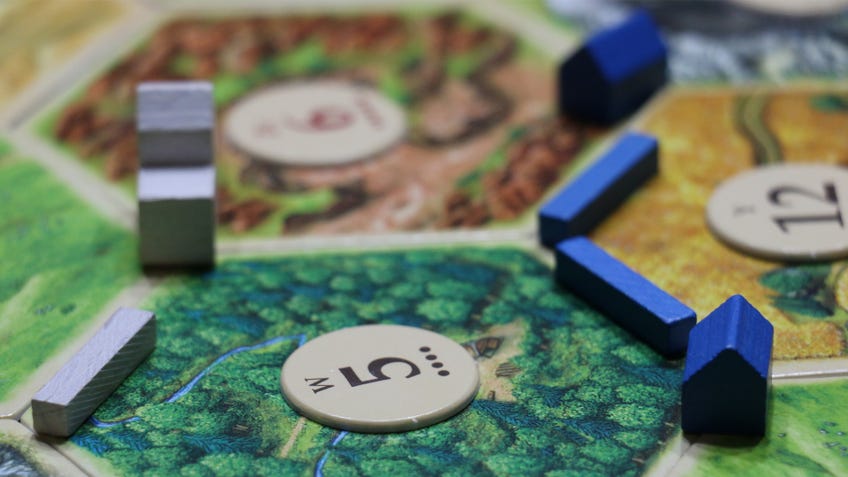
Before Catan, Teuber had already experienced acclaim in his home country, winning the prestigious Spiel des Jahres award three times for Barbarossa, Adel Verpflichtet and Drunter und Drüber. (Adel Verpflichtet was also the first recipient of the similarly lauded Deutsche Spiel Prize, five years before Catan’s own win.) Teuber’s success had also seen his games extend outside of Germany in the early 1990s, with Adel Verpflichtet brought to America as By Hook or Crook and the UK as Fair Means or Foul.
Even those games that don’t take direct inspiration from its groundbreaking gameplay owe Catan a debt for opening the eyes of players around the world to a very different style of board game.
Catan’s acclaim and success, however, was on another level - one that no board game has reached since. Since its release in 1995, the game has sold more than 40 million copies; seen a number of expansions and spin-offs set in worlds from Games of Thrones to Star Trek; been adapted for mobile, consoles, augmented reality and virtual reality; and has even been in talks for a movie adaptation. A Catan World Championship has been held regularly around the world for the last 20 years. Despite Teuber’s focus on the Catan series in the time since its success (the former dental technician became one of the first full-time board game designers in 1999), behind the legendary Wolfgang Kramer - and jointly with Michael Kiesling - it remains the case that no other designer has won the Spiel des Jahres more times.
Catan threw open the door for what we think of today as modern board gaming. Even those games that don’t take direct inspiration from its groundbreaking gameplay owe it a debt for opening the eyes of players around the world to a very different style of board game and paving the way for mechanically-rich experiences to find an audience.
It’s a testament to Teuber’s masterpiece and its creator that Catan continues to find new fans almost three decades after it rewrote what popular board games could be. Teuber has created a true lasting legacy; board gaming is poorer with his tragic loss, but unimaginably richer for what he leaves behind.
